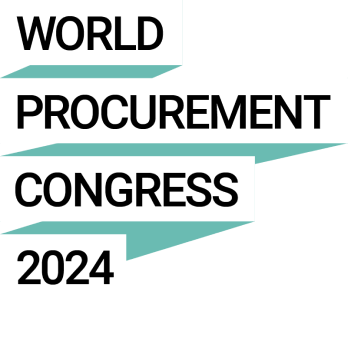Two of those days gave us a refreshing reminder of what business networking used to be pre-pandemic, as 220 people convened live at the Intercontinental hotel at the O2 in London. Joining them was an audience of 1,630 virtual participants, reminding us we are not quite done with the travel disruptions we have grown used to in the past couple of years.
Whether attending live or virtually, the line-up of speakers got the audience thinking about procurement’s purpose. CPOs have demonstrated their teams’ value to the business in various ways throughout the pandemic and now have more direct communication channel to the C-suite, but with this comes great responsibility. The challenges around sustainability, diversity and inclusion, and digitalisation, are far from being solved. This presents an opportunity to procurement.
Taking stock
To make procurement better fit with future requirements we must first take stock of all that the function has done during the pandemic. Thinking of talent, those of us in the live audience were happy to dust off our suits and dresses, but this view is not shared by all in the virtual audience. Many leaders on stage said they firmly believe in the benefits of bringing staff back under the same roof can have on culture and collaboration, but are also aware of people’s increased demand for flexible working. The return to pre-pandemic normality, at least in knowledge work, is out of the question.
PL’s Chief Product Officer David Rae used the word bimodal to describe the way in which procurement teams have learned to keep the business moving whilst also delivering against the big-ticket items of sustainability, resilience and digitalisation. The challenge now is to keep the momentum going and not revert back to old, siloed operations. Philippa Malmgren, economist and former White House economic advisor even further, stating that if we are still today doing things the same way as before Covid-19, we are probably doing things wrong.
The pandemic forced many procurement teams to accelerate their digital transformation programmes, and as a result they are now better equipped to draw prescriptive insights from their various data sources. The onus is now on using that data, as well as procurement’s increased exposure, to influence key decisions across the organisation. The excuse of leaders not having time for those big-ticket items is no longer valid after so many months of firefighting.
NO TIME TO LOSE ON SUSTAINABILITY
The most pertinent area where procurement will need to demonstrate its leadership, according to WPC speakers, is sustainability. Being a good corporate citizen, both from environmental and social view-points, is now a board-level priority. To that end, companies have been busy making commitments along the lines of being carbon neutral by 2030 (Diageo) or spending €2bn annually with diverse suppliers (Unilever). The focus for procurement has therefore shifted from creating awareness to finding solutions that ensure companies aren’t just doing lip service.
Leaders at WPC shared inspiring examples of what taking action looks like in their industries
BP, the petrochemicals company are by the virtue of their sector a major player in the broader transition from fossil fuels to green alternatives – procurement’s role is to enable the transition strategy. Chris Garwood, VP Supply Chain Solutions at BP emphasised having shared objectives with the broader business.
Stuart Caborn, CPO and Alexis Souchon, Head of Procurement Excellence at frozen foods company Nomad Foods believe part of the answer is circular economy. In the future, the company may use brewing companies’ barley residue as an ingredient for new plant-based products, or contribute its own excess cod skins to the medical industry to use as a treatment to burn injuries.
Thomas Udesen, the CPO of pharma company Bayer and the co-founder of Sustainable Procurement Pledge proposed treating carbon emissions as a currency, which would force large polluters to think twice about their environmental impact. His thoughts on the matter were recently discussed in a Forbes article.
No matter the approach, procurement leaders must be brave in taking the lead and making a positive impact on the environment and society at large. Whether they get suppliers onboard will be crucial for any of the above initiatives to be successful. After all, it is the unique position procurement has in the interface of the business and external partners that gives it its power to make a difference.
Find out more about Procurement Leaders membership.


















